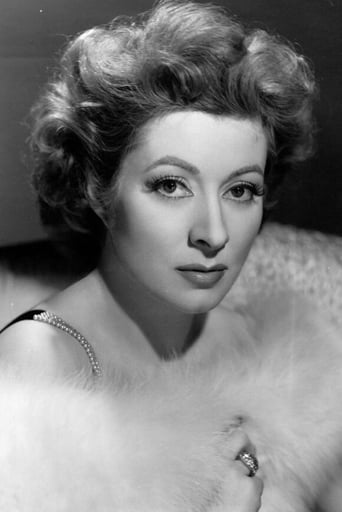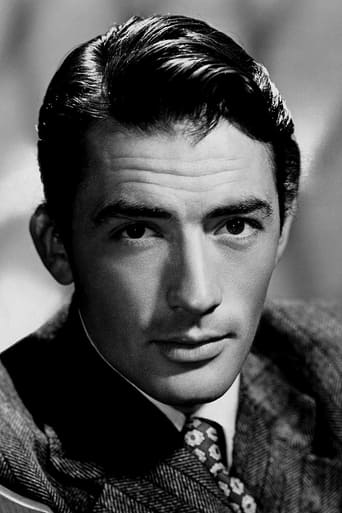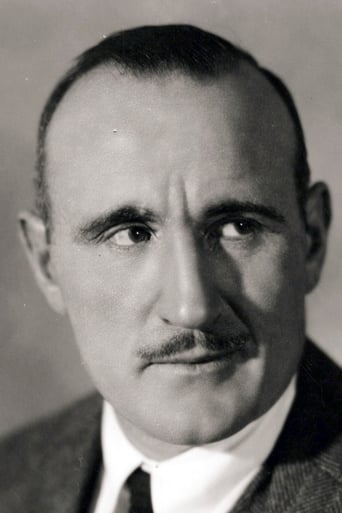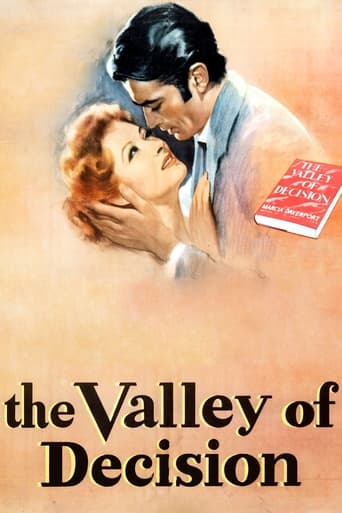
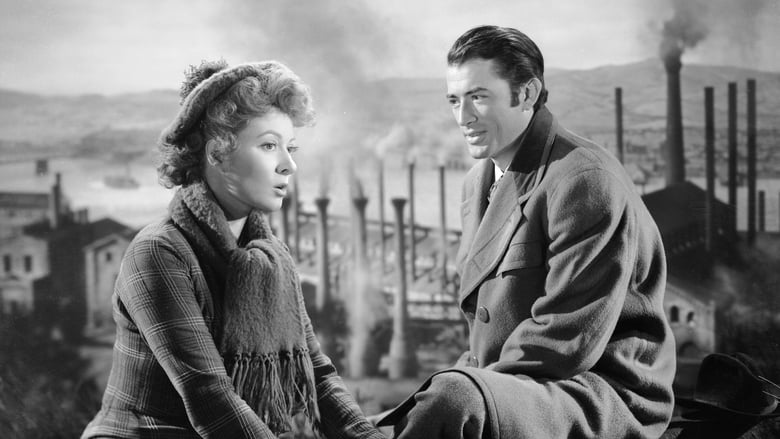
The Valley of Decision (1945)
Mary Rafferty comes from a poor family of steel mill workers in 19th Century Pittsburgh. Her family objects when she goes to work as a maid for the wealthy Scott family which controls the mill. Mary catches the attention of handsome scion Paul Scott, but their romance is complicated by Paul's engagement to someone else and a bitter strike among the mill workers.
Watch Trailer
Cast


Similar titles
Reviews
Powerful
Just perfect...
There's no way I can possibly love it entirely but I just think its ridiculously bad, but enjoyable at the same time.
This movie tries so hard to be funny, yet it falls flat every time. Just another example of recycled ideas repackaged with women in an attempt to appeal to a certain audience.
This was only Gregory Peck's third movie, but it one of my very favorites that he starred in. And, I like it for 2 reasons. First, the star pairing of Peck with Greer Garson, and second, a sort of battle between 2 wonderful character actors -- Lionel Barrymore and Donald Crisp.You do need to understand that this is not only a drama, but also a very serious story. More serious than most dramas. Set in the steel-era of Pittsburgh, Peck's family owns one of the major steel plants, while Garson's family is simply Irish workers in the mills...except that her father (Lionel Barrymore) is an embittered old man who was crippled in a mill accident many years before. Garson goes to work in the mansion of Peck's family, including his father (Donald Crisp) and mother (Gladys Cooper), and 2 brothers and 1 sister (Marsha Hunt, Dan Duryea, and Marshall Thompson). Garson and Peck almost immediately fall in love, but Garson feels the love in inappropriate due to their different stations in life. So, she moves to Europe with Peck's sister. However, when father Crisp learns they were in loves, he calls her back, just in time for the showdown between the union and Crisp...when both patriarchs are killed. Film over. Not! A few years later, after Peck marries another woman, Peck's mother leaves her share of the mill to Garson, then dies, and it is Garson's vote which saves the mill for Peck. Peck leaves his meddlesome wife and Peck and Garson ride off into the sunset...well, at least off in a carriage.Is there romance? Yes, but it is overshadowed by the social issues related to mining and class distinctions between miners and owners. It's all quite interesting...but serious.Garson was nominated for an Academy Award for this picture, and she is superb as the Irish worker bee. Peck is excellent, as well. Donald Crisp turns in a superb performance and outshines Lionel Barrymore, who plays the villain here. The other siblings previously mentioned do their jobs. Jessica Tandy (whom Peck marries here) is also good at being cold. Gladys Cooper is excellent as the mother of Peck, here, but she was always such a fine character actress.It's not easy to fault this film, but...the musical score sometimes sounds more like a Western. And, I felt that Reginald Owens' role as a servant was over the top. But, other than that, the movie is excellent and well worth watching. And, one for the DVD shelf.
I viewed this movie and fell in love with the story of a family who owned a Pittsburg Steel Mill. What a great movie where determination and love of the steel mills helped preserve and shape the USA into a world power. The portrayal of steel workers along side the upper class was particularly interesting, because the owners are showed as observers and not really part of the sweat and steel, until Gregory Peck gives an awe inspiring speech about what its like working on the ground floor of a steel mill. I particularly enjoyed Gregory and Greer's on screen relationship and the difficulty of romantic relationships between two different classes. I thoroughly enjoyed this movie.
Greer Garson, with a terrific Irish brogue, earned still another Oscar nomination. With the exception of 1940, Miss Garson was nominated for best actress from 1939-1945, a Hollywood record.The film depicts the old problem of wealth vs. poverty. A pretty and pert Greer goes to work for the family of Gregory Peck. They are lovely, unpretentious people. Her dad, played by the irascible Lionel Barrymore, is a hot head if ever there were. His hot-headedness will ultimately lead to his downfall as the film goes on.We see wealth and snobbery associated with it, especially by Peck's wife, brilliantly played by a young Jessica Tandy. In a change of pace, veteran movie mother, Gladys Cooper, comes off as a wonderfully, kind sort of matriarch married to the indomitable Donald Crisp.The ending is great. All I can say is that fairness triumphs over snobbery. Class distinctions just seem to go away.
Something about old films and the way the predictability does not inhibit viewing enjoyment. I really liked this movie and found it very strait-forward and pure. The acting was superb and the performances by Greer Garson and Gregory Peck were both fantastic as well as nice performances by the supporting actresses Marsha Hunt (Constance Scott) and Gladys Cooper (Clarissa Scott).A tale of and Irish-poor girl, Mary Rafferty (Garson), who finds love outside of her social status with Paul Scott (Peck), and heir to the families Steel fortune/mill...nothing real or avant-Gard happening but the truth of how love has no boundaries. I truly feel that this movie should be used as a blue-print to how Hollywood can portray a true love-without-boundaries type melodrama in the most exquisite and pure way.


